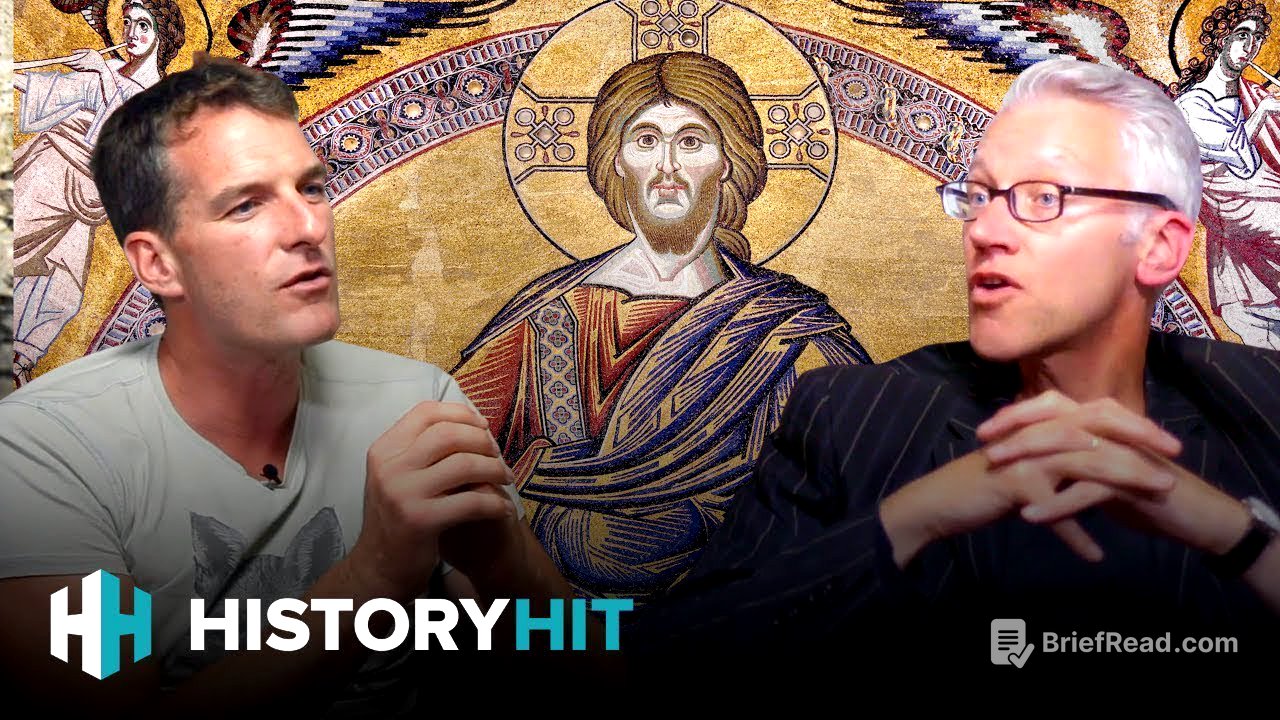TLDR;
This video features an interview with Tom Holland, a historian, about his book "Dominion: The Making of the Western Mind." Holland discusses how his study of ancient history led him to realize the profound influence of Christianity on Western society, even for those who are not religious. He argues that many values and concepts we take for granted, such as humanism, science, and the idea of progress, are rooted in Christian thought. The conversation explores the revolutionary nature of early Christianity, its impact on the Roman Empire, and its continuing influence on Western culture and morality.
- Christianity's revolutionary impact on Western values.
- The surprising Christian roots of secular concepts.
- The ongoing debate about the sustainability of Western values without Christian belief.
Introduction: Tom Holland's Journey to "Dominion" [0:00]
Tom Holland shares that his fascination with ancient history, initially drawn to the "strong men" and empires of Greece and Rome, evolved as he recognized a growing sense of alienation from their values. He found their callousness unsettling, prompting him to investigate the origins of modern moral sensibilities. This led him to conclude that Western society, including himself, is fundamentally Christian, not in a confessional sense, but in terms of the civilization and worldview shaped by Christian principles. He likens this influence to being a goldfish swimming in Christian water, unaware of its pervasive presence.
The Revolutionary Nature of Early Christianity [6:21]
Holland explains that Paul's letters, written shortly after the crucifixion, reveal the revolutionary message at the heart of Christianity. The crucifixion of Jesus, a humiliating death for a slave, was seen as the beginning of a new covenant. This idea was a "stumbling block" because it challenged existing notions of power and success. Paul's message proclaimed the dignity of the weak, the equality of all humans created in God's image, and a universalism that transcended social and ethnic boundaries. These radical ideas subverted the values of both Jewish and Greco-Roman societies, emphasizing that defeat could be a form of victory.
Christianity's Impact on the Roman Empire and the Middle Ages [10:33]
The Christian church emerged within the Roman Empire, emphasizing charity and care for the weak. When Constantine became a Christian, this welfare system gained imperial support, enabling the church to endure even after the empire's decline. Augustine, in response to the sack of Rome in 410, distinguished between the ephemeral "city of man" and the eternal "city of God," arguing that true religio (binding) lies in connecting with this unchanging eternity. This concept was later weaponized in the 11th century by radicals who sought to reform the church, separating it from the state and establishing the Pope as a sovereign authority. This period was marked by convulsive revolution, establishing an archetype of reformatio that would recur throughout European history.
The Christian Roots of Secular Concepts and the Challenge of Maintaining Values Without Belief [19:17]
Holland argues that concepts like "secular" and "religion" are themselves shaped by Christian assumptions. He uses the example of British colonialism in India, where the British imposed their Christian-derived categories onto Indian society, creating the concept of "Hinduism" as a religion distinct from the secular sphere. He contends that humanism, Marxism, and even science are attempts to justify Christian morality without Christian belief. Drawing on Nietzsche's parable of the death of God, Holland questions whether these values can be sustained without the theological and cultural seedbed of Christianity, especially in the face of ideologies that reject human equality and the responsibility of the strong to the weak.
The Universalism of Christian Values and the Legacy of the Holocaust [35:43]
Holland discusses the Christian conviction that its values should be universal, leading to missionary efforts and the imposition of values like the abolition of slavery. He notes that the conviction that slavery is wrong emerged from radical Protestantism. The Holocaust, in its repudiation of core Christian teachings, imprinted these ideals as values to be upheld, even without religious belief. However, he questions whether these values can be sustained in the long term without the cultural and theological foundations that gave them birth, particularly when confronted by ideologies that reject these principles.









